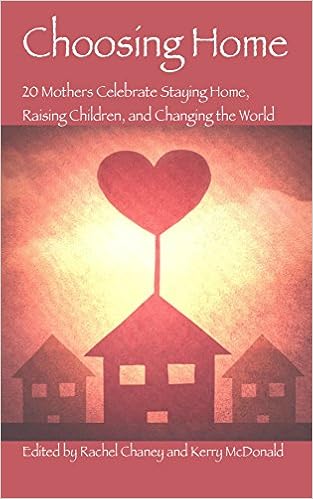For generations, children learned in their homes, from their parents, and throughout their communities. Children were vital contributors to a homestead, becoming involved in household chores and rhythms from very early ages. They learned important, practical skills by observing and imitating their parents and neighbors--and by engaging in hands-on apprenticeships as teens--and they learned literacy and numeracy around the fireside.
In fact, the literacy rate in Massachusetts in 1850 (just two years prior to passage of the country's first compulsory school attendance law there) was 97 percent.[1] According to the National Center for Education Statistics, the Massachusetts adult literacy rate in 2003 was only 90%.
In advocating for compulsory schooling statutes, Horace Mann and his 19th century education reform colleagues were deeply fearful of parental authority--particularly as the population became more diverse and, in Massachusetts as elsewhere, Irish Catholic immigrants challenged existing cultural and religious norms. "Those now pouring in upon us, in masses of thousands upon thousands, are wholly of another kind in morals and intellect," mourned the Massachusetts state legislature regarding the new Boston Irish immigrants.[2]
In his book, Horace Mann's Troubling Legacy, University of Vermont professor, Bob Pepperman Taylor, elaborates further on the 19th century distrust of parents, particularly immigrant parents, and its role in catalyzing compulsory schooling. Pepperman Taylor explains that "the group receiving the greatest scolding from Mann is parents themselves. He questions the competence of a great many parents, but even worse is what he takes to be the perverse moral education provided to children by their corrupt parents."[3] Forced schooling was then intended as an antidote to those "corrupt parents," but not, presumably, for morally superior parents like Mann, who continued to homeschool his own three children with no intention of sending them to the common schools he mandated for others. As Mann's biographer, Jonathan Messerli, writes:
"From a hundred platforms, Mann had lectured that the need for better schools was predicated upon the assumption that parents could no longer be entrusted to perform their traditional roles in moral training and that a more systematic approach within the public school was necessary. Now as a father, he fell back on the educational responsibilities of the family, hoping to make the fireside achieve for his own son what he wanted the schools to accomplish for others." [4]As mass schooling has expanded over the past 165 years, parental empowerment has declined precipitously. Institutions have steadily replaced parents, with alarming consequences. Children are swept into the mass schooling system at ever-earlier ages, most recently with the expansion of government-funded preschool and early intervention programs. Most young people spend the majority of their days away from their families and in increasingly restrictive, test-driven schooling environments. It is becoming more widely acknowledged that these institutional environments are damaging many children. Boston College psychology professor, Dr. Peter Gray, writes: "School is a place where children are compelled to be and where their freedom is greatly restricted--far more restricted than most adults would tolerate in their workplaces. In recent decades, we have been compelling our children to spend ever more time in this kind of setting, and there is strong evidence (summarized in my recent book [Free To Learn]) that this is causing serious psychological damage to many of them."
For teenagers, the impact of mass schooling can be particularly severe. Largely cut off from the authentic adult world in which they are designed to interact, many adolescents rebel with maladaptive behaviors ranging from anger and angst to substance abuse and suicide. As Dr. Robert Epstein writes in his book, The Case Against Adolescence: Rediscovering the Adult in Every Teen: "Driven by evolutionary imperatives established thousands of years ago, the main need a teenager has is to become productive and independent. After puberty, if we pretend our teens are still children, we will be unable to meet their most fundamental needs, and we will cause some teens great distress."[5]
It is time to hand the reins of education back to parents and once again prioritize genuine learning over mass schooling. Parents know best. They should be able to choose freely from a wide variety of innovative, agile education options, rather than rely on a one-size-fits-all mass schooling model. By positioning parents to take back control of their children's education--to reclaim their rightful place as experts on their own children--we can foster more education options and better outcomes for children and society.
[1] Total Massachusetts population in 1850 was 994,514; total illiteracy rate in Massachusetts in 1850 was 28,345
[2] Peterson, Paul E. Saving Schools: From Horace Mann to Virtual Learning. Cambridge, Massachusetts: Belknap Press, 2010, p. 26.
[3] Pepperman Taylor, Bob. Horace Mann's Troubling Legacy: The Education of Democratic Citizens. Lawrence, KS: University Press of Kansas, 2010, p. 33.
[4] Messerli, Jonathan. Horace Mann: A Biography. New York: Alfred A. Knopf, 1972, p. 429.
[2] Peterson, Paul E. Saving Schools: From Horace Mann to Virtual Learning. Cambridge, Massachusetts: Belknap Press, 2010, p. 26.
[3] Pepperman Taylor, Bob. Horace Mann's Troubling Legacy: The Education of Democratic Citizens. Lawrence, KS: University Press of Kansas, 2010, p. 33.
[4] Messerli, Jonathan. Horace Mann: A Biography. New York: Alfred A. Knopf, 1972, p. 429.
[5] Epstein, Robert. The Case Against Adolescence: Rediscovering the Adult in Every Teen. Sanger, CA: Quill Driver Books, 2007, p. 21.
























Great read! Thank you.
ReplyDeleteFantastic article! Thank you for taking the time to research and write it. I'm sharing.
ReplyDelete